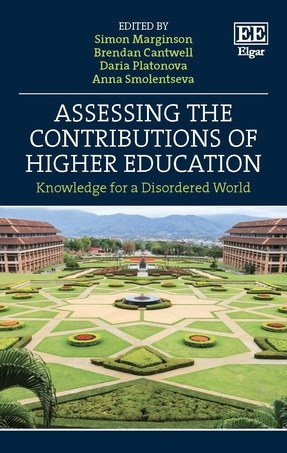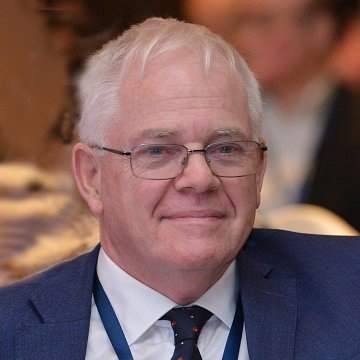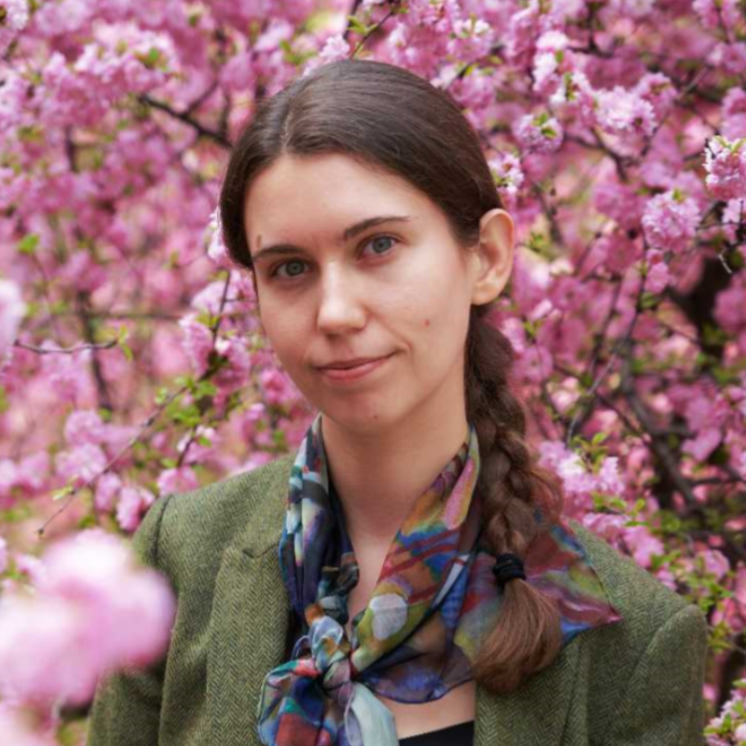The contributions of higher education 1: Seeing higher education as a state, seeing higher education and society
- Brendan Cantwell, Michigan State University, USA
- Simon Marginson, University of Oxford, UK
- Daria Platonova, Higher School of Economics, Russia
- Anna Smolentseva, University of Cambridge, UK
Event Materials
This event is now archived and we are pleased to provide the following event media and assets, along with the original event overview.
View Brendan Cantwell’s slides
View Simon Marginson’s slides
View Daria Platonova’s slides
View Anna Smolentseva’s slides

Chair: Simon Marginson
The multiple contributions of higher education pose a challenging problem for both policy makers and scholars. There are no commonly agreed definitions and measures and the discussion is plagued by simplifications of a complex emergent reality. For example, policy makers often work with a narrow and reified notion of higher education as individual pecuniary benefits, coupled with limited public good spill-overs from the higher education ‘market’. This business model of higher education, familiar to policy economists, obscures much of the real work of the sector in student learning and development, and in relation to knowledge, thereby leading to under-estimation of most of its impacts in the economy, society, polity and culture. The new open access book Assessing the contributions of higher education broadens the discussion by examining different facets of higher education and its social connections, and tackles the conceptual and empirical challenges in devising an approach both rigorous and comprehensive. In the first webinar in this special CGHE series on the findings of the book, Simon Marginson will introduce the main themes and list the chapters. He will then pass to his fellow editors who will discuss their own chapters.
In ‘Understanding the contributions of higher education through the politics of reform’, Brendan Cantwell and Daria Platonova note that identifying higher education’s contributions is difficult to do in the abstract, and precise empirical measurement and attribution faces methodological and empirical challenges. To address these challenges, the chapter proposes an inductive approach involving description and analysis of reform policies, as a means of understanding the evolving expectations about the contributions of higher education, placed on the sector, through the political economy of reform. The chapter considers four examples: the Bologna Processes in Europe, student success reforms in the United States, and world class university initiatives in Russia and China. The cases are not assumed to be equivalent or directly comparable, but together suggests that inductive policy review can identify priorities expected from higher education and, from those, the evolution of expected contributions, as well as the actors involved in setting priorities.
In ‘Contributions of higher education to society: Towards conceptualisation’, Anna Smolentseva draws on various disciplinary and scholarly approaches to the multiple roles of higher education in society. This paper offers a new conceptualisation of the non-economic contributions of higher education. The conceptual model identifies two basic dimensions in higher education’s contributions to society. The first, axiological dimension pertains to the objects of higher education: what higher education does, what is in the centre of its activities. This includes three key elements: knowledge/skills (basic and applied knowledge, generic and particular skills), norms and values (social, cultural, professional, civic) and social value (social statuses). The second, praxeological dimension pertains to the internal dynamics of higher education: what higher education does with the object, the processes, practices, activities. This entails three elements: transmission, transformation and creation. The resulting model combines the two dimensions (axiological and praxeological), identifying nine key domains of the contributions of higher education to society. This conceptualisation both brings together the three major components of higher education’s role (often described, inadequately, as teaching, research and ‘service’) and attends to its internal dynamics. It illuminates the intrinsic value of teaching, learning and research and the inherent transformative potentials of higher education for individuals and for societies. It embraces actual and potential contributions of higher education to society. It is applicable at both individual and collective levels. It works in the scales of group, institution, local, national and global.
About the CGHE webinar series on ‘Assessing the contributions of higher education’

- Assessing the contributions of higher education (2023), published by Edward Elgar can be downloaded free at: https://www.elgaronline.com/edcollbook-oa/book/9781035307173/9781035307173.xml
In this CGHE webinar series the authors of the newly released Edward Elgar book Assessing the contributions of higher education (edited by Simon Marginson, Brendan Cantwell, Daria Platonova and Anna Smolentseva) present ideas from their chapters and engage the participant audience on the key topic of how we can better understand – and improve – the contributions that higher education makes to societies across the world.
Despite the broad engagement of higher education institutions in most social sectors, limited thinking and hyper-individualistic approaches have dominated in discussions of their value to society. Advocating a more rigorous and comprehensive approach, Assessing the contributions of higher education discusses the broad range of contributions made by higher education and the many issues entailed in theorising, observing, measuring and evaluating those contributions.
Prepared by a group of leading international scholars, the chapters of Assessing the contributions of higher education investigate the multiple interconnections between higher education and society and the vast range of social, economic, political and cultural functions carried out by universities, colleges and institutes and their personnel. The benefits of higher education including employable graduates, new knowledge via research and scholarship, climate science and global connections, and the structuring of economic and social opportunities for whole populations, as well as work and advice for government at all levels. Higher education not only lifts earnings and augments careers, it also immerses students in knowledge, helps to shape them as people, and fosters productivity, democracy, tolerance and international understanding. International and interdisciplinary in scope, the book highlights the value added by higher education for persons, organisations, communities, cities, nations, and the world. It also focuses on inequalities in the distribution of that value, and finds that the tools for assessing higher education are neither adequate nor complete as yet. All of these themes and issues will be presented in the CGHE webinar series.
The underlying collaborative research project took place in 2018-2021 and was part funded by the Higher School of Economics in Moscow, Russia, prior to the Russia/Ukraine war. The research also overlaps with the investigation in CGHE’s research project on ‘The public good role of higher education in ten countries: a comparative approach’.
You need to register individually for each webinar in the series. You can register for the other webinars in the series here.
Booking
You will need to register to join this webinar. Please register here




